Continual learning is a ticket to success
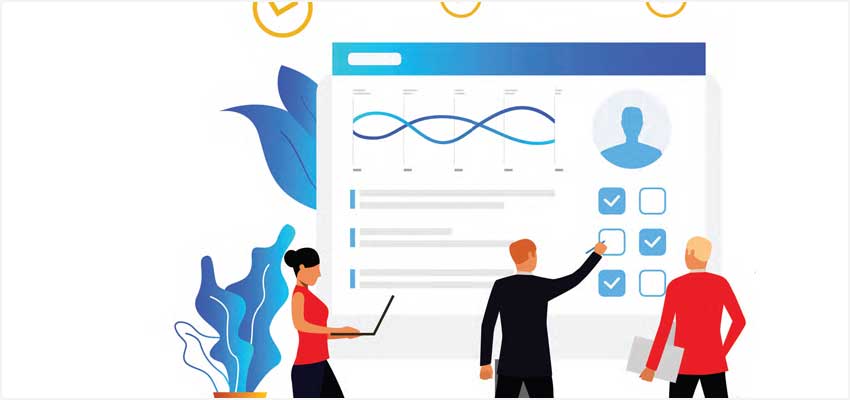
Dr Kiranmai Pendyala, Head of HR, Western Digital India & Board Member, United Way, Hyderabad (‘For Impact’ Organization), is a seasoned HR professional with over thirty years of experience and has delved into the education sector along with the corporate world. She brings together a unique blend of keen academic focus and organisational experience. She has successfully straddled diverse roles in teaching, training, human resource development, consulting, quality and technical writing. She is an accomplished author with multiple of her books prescribed as curriculum by various universities across the country. In an interview with Corporate Citizen, Kiranmai Pendyala talks about the need for empathy amidst the Covid pandemic, why continuous learning is essential and more
Corporate Citizen: How Human Resource is perceiving its employees in the pandemic scenario as compared to the pre-pandemic era? What are the things that have changed in terms of managing the employees, enabling the employees, appraisals, and such?
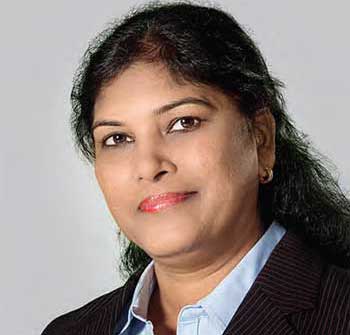 Kiranmai Pendyala
Kiranmai PendyalaKiranmai Pendyala: Employees are the most important assets in a knowledge-based organisation, as we all know. The shift from the pre-pandemic times to the pandemic scenario is clearly having employee well-being and safety as the most important priority. Not that this was not important earlier, but it became the most important priority now, more than ever, especially, given the devastating impact of the second wave in India.
What has changed? A lot has changed-it is the new normal as we speak. Employees are working remotely, leveraging new collaboration tools to brainstorm and continue to innovate. Virtual collaboration is the new way to enable and manage employees. In the world of technology-related industries like Western Digital, it just helped to accelerate digitisation and adoption of virtual meetings and inclusion of employee families for various wellness-related initiatives.
The setting of agile, collaborative goals, ergonomic infrastructure set up at home, ongoing conversations, timely recognition, frequent check-ins and incentive adjustments are a few key initiatives that are enabling the employees to keep themselves afloat.
Covid-19 has been a huge disruptor and a definite game-changer throughout the global economy. Many business and HR functions have been totally revamped after being in disarray for a considerable period. HR needs to ensure business viability and longevity of current trends by installing a robust performance management process in place, even as it struggles to leap out of the economic inertness left by the pandemic worldwide.
One of the most prominent changes-the impact of which we have all seen and felt-is the global imposition of remote work. After all, a safe approach was needed to maintain effective business continuity during enforced lockdowns, even as the pandemic raged on.
Here are six key components of a modern performance management system designed to ensure productivity in a remote workplace:
"The key cultural attributes at Western Digital and helping drive the adoption of our core values is a path to ensure the development of more empathetic leadership"

Reassess goals and KPIs for the new normal
As a result of the new and unique situation the current global economy faces, job roles have fluctuated considerably, with not all equivalent roles having equal workloads. Hence, role and KPI realignment can be important to save costs while rendering support to cross-functional processes. Useful obligations alone can’t be utilised to assess worker exhibitions.
OKR methodology
The prevalent “objective and key results” methodology can be implemented by management to set, communicate and trace organisational goals. As this is a general methodology toward objectives and representative execution at different hierarchical levels, it can assist with joining responsibility.
Goal setting: SMART
Goal-setting has become yet more serious in the current economic climate, with goal-redefining an obligatory aspect as a result of the remote work model. Unclear defined goals can become a cause of bad performance and future worries in a climate already marred by global crises and constant disruption. Thus, it is absolutely vital that goals defined by the organisation are specific, measurable, actionable, relevant and time-bound (SMART). By doing so, you create more clearness, assurance and a sharp sense of ownership.
Keep in touch with employees
It is conditions such as the pandemic that bring out fear within workers with regards to their presentation. Along these lines, administrators should comprehend the need and significance of keeping in touch with workers and keep them refreshed on every important level. Offer them chances to discuss their work, lives, objectives, and so on.
Well-timed and continuous feedback
A continuous performance management framework (i.e., yearly surveys) gives more understanding into worker execution and generally authoritative methodologies on time. It additionally offers you a chance to re-examine and measure different objectives and their suitability. Also, it keeps everybody in total agreement.
A strong-minded and accurate goal-achieving strategy, with continual and timely feedback, can go a long way toward improving the output and goal-achieving capacity of employees.
Have faith in your employees
This is a key achievement factor on all levels. As the remote working situation is common, there might be a couple of employees who aren’t able to keep up to the mark while fulfilling time constraints. Accepting that such workers are wasteful or clumsy is a genuine mistake in judgment. It is important to trust all employees and subordinates and give them the privilege of clear communication, especially in regards to personal matters. Many aspects of human lives are unclear while working remotely, so having faith while all of us are struggling is wise.
Performance management and feedback systems have become a core part of both our corporate and personal lives. The more we cling to it, the better our lives become when seen from an objective accomplishing vantage point. Eventually, open and straightforward correspondence is the way in to a powerful and effective exhibition that executives framework, regardless of your physical location.
CC: On the backdrop of the current Covid situation, how important is empathy in corporate culture today?
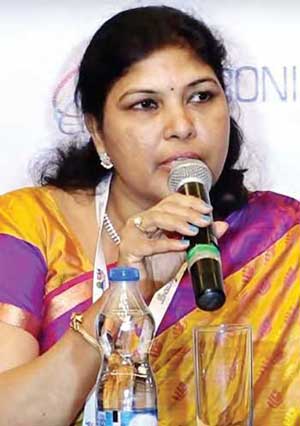
Empathy is at the core of corporate culture like never before. When you show deep empathy toward others, it helps in diffusing the negative energy and bringing in positive energy. That’s one of the best ways to help solve the problem and move forward from the spiral of negativity and whirlpool of problems. Any company that fails to act and embrace empathy towards employees and stakeholders, will do so at its peril.
Empathy means the ability to sense the emotions and feelings of others. It also includes the ability to imagine what the other person is going through. So, when you are empathetic to someone, you put yourself in their shoes and try to understand their emotions. The two types of empathy are:
Cognitive empathy: You can identify and comprehend other people’s emotions and feelings in an effective way. For instance, if you can sense a feeling of nervousness in a candidate appearing for an interview, you are empathetic in a cognitive way.
Affective empathy: In this case, empathy refers to the feelings and emotional sensations you feel in response to others’ emotions. It happens when you can relate to other’s feelings, and that mirrors the same inside you. For example, if your team is stressed about the sales target and the exact stress mirrors inside you looking at their stressed faces, it is affective empathy.
Empathy is like peeling an onion-how does it translate to an employee, if empathy is demonstrated as a cultural attribute? Choosing an ‘Attitude of Gratitude’, asking questions, prioritising listening, creating a culture of teamwork, being authentic and transparent, and most importantly, the manager needs to not make it about himself/herself-it is the employee who is the critical resource.
CC: How to encourage empathetic leadership among employees?
As Maya Angelou said:
“People will
Forget what you said
People will
Forget what you did
But people will never
Forget how you made them feel”
The key cultural attributes at Western Digital and helping drive the adoption of our core values is a path to ensure the development of more empathetic leadership.
Empathetic leadership leads to or promotes:
- Workplace engagement
- Trust
- Happiness
- Better listening
- Healthier collaboration
- Increased creativity/innovation
- More responsible leaders
Organisations and HR leaders can encourage a more empathetic workplace and help managers improve their empathy skills in a number of simple ways.
- Talk about empathy in the workplace to signal its value
- Teach listening skills
- Encourage genuine perspective-taking
- Cultivate compassion
- Support global managers
- Help them not to interrupt when the other person speaks
- Coach them to be fully present sans distractions
- Train them to watch body language for a better understanding
- Help them encourage the quiet and shy ones
- Help them to leave judgment behind and be open-minded
- Ask them to take a personal interest
- Help them to lead from within: Empathy is an emotional and thinking muscle that becomes stronger with the use
Interestingly, we at Western Digital, always had Collaboration, Care, Trust and Innovation as our key culture attributes which continues to play on enhancing empathetic leadership among our people managers and co-workers.
"Working on the intangible is never easy. The HR department has been trained to work with people, largely, face to face, and occasionally, remotely. Now, it is entirely remote. It is indeed a huge challenge to continue to keep employees engaged and strengthen their trust"
CC: Is it difficult or easy for the HR department to make sure that things are working out as they should when employees are working remotely? Has the trust factor been affected?
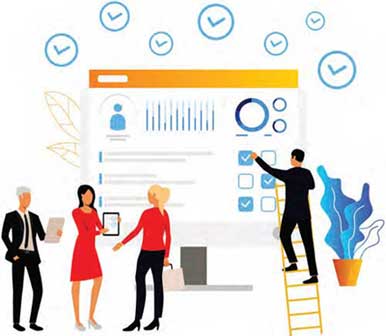
Working on the intangible is never easy. The HR department has been trained to work with people, largely, face to face, and occasionally, remotely. Now, it is entirely remote. It is indeed a huge challenge to continue to keep employees engaged and strengthen their trust.
We are all interacting through our digital devices and working on heterogeneous teams with people located in various parts of the world who we’re not likely to meet face-to-face anytime soon. We lack the luxury of regularly observing our peers in person, making it harder to sense their intentions, values, and beliefs (and vice versa). This is a problem. In any kind of work environment, one needs trust for all kinds of reasons. Without it, one may not feel comfortable bringing one’s whole self to work. You and your co-workers may struggle to support one another or openly share ideas and opinions, leading to damaging miscommunications, decreased productivity, and a fear of taking risks that could help one learn and grow in one’s career.
CC: What have you done at Western Digital to keep the employees engaged and not allow depletion in the trust factor?
We at Western Digital, have leveraged tools to help employees analyse the time spent on digital devices and on meetings, for example, workplace analytics, to build work-life integration better, taking clear time off for lunch and other needed breaks, communicating core work hours to help team collaboration, modifying leave policies to have additional 28 days of pandemic leaves, bringing in experts to lead wellness awareness; physical, emotional, health, and financial health, leading vaccination drives for employees, contingent workforce and dependents, giving paid time off in addition to holidays and leaves, are a few of the initiatives which are helping us retain the psychological contract with our employees in these trying times.
CC: You are an academician and a corporate professional. Do you see any gap between what is taught at schools and colleges as compared to what is expected from a student who has passed out?
I do see a huge chasm for the transition from campus to corporate, which is why we have a well-thought-out specially designed “Launch” programme for NCGs (New College Graduates) stepping into Western Digital.
The gamified learning journey for the NCGs makes it fun, inspiring and interesting to lead them across the gap to transition into the corporate world. To name a few, a student is exposed to hierarchical structures, not allowed largely to express his/her opinion or disagreement, and is winning accolades for memory-based testing, rather than originality or creativity and is operating in silos, rather than teamwork. The corporate life will need the student to be a problem-solver, creative, collaborative, and speak up when needed, unhesitantly, and work in a flat structure, wherein, continual learning is a ticket to success.
CC: What sort of differences and similarities you have experienced as an academician overseas and in India?
In regards to overseas education, especially, in the developed nations, they focus on bringing out the creativity and originality of a student, whereas, Indian education is still structural and rote learning-based. However, with the new National Education Policy (NEP), there is a change along the lines of some of the finest examples of overseas education, allowing flexibility in learning, credit system and more ownership to the learner, etc.
"HR needs to ensure business viability and longevity of current trends by installing a robust performance management process in place, even as it struggles to leap out of the economic inertness left by the pandemic worldwide"
CC: Is Work From Home (WFH) here to stay? Or things will be back to normal?

Given the multi-year havoc due to the pandemic, the new normal seems to be adopting or moving towards a hybrid work model which will be a combination of work from home and work from the office, aka hop on and hop off. Of course, based on the role, some can be assigned permanent WFH, and some permanent Work from Office for the Manufacturing sector; Sales and Marketing can be a mobile workforce, dropping into the office as and when needed.
Several IT-based organisations are relooking at leveraging WFH as an advantage if employees’ role or productivity is not challenged, and the cost savings on operational elements can be passed back to the employees as a benefit.
An important point to note is that WFH or remote working, owing to the pandemic is now widely and globally heard by one and all. However, various organisations have been leveraging a spectrum of options for a few years, prior to the pandemic, to accommodate employee flexibility, as well organisational cost savings, etc.
Satellite offices, co-working spaces, shared offices, telecommuting, home offices, mobile workforce have been the options for various organisations like AT&T, IBM, Cisco, Facebook, Google, Accenture have been leveraging for some time. There are pros and cons, of course, cons would be of taking any of these options to an extreme, as we know that ‘one shoe fits all’ approach does not succeed.
CC: What would be your word of advice for future corporate leaders who are about to join the industry?
The Twelve Sutras for success I would recommend for future corporate leaders who are about to join the industry are:
- Be transparent and authentic
- Keep people first in decision-making
- Live the culture of the workplace
- Don’t be afraid to fail
- Never stop learning
- Align passion with purpose
- Have a sounding board across levels of the organisation-lest your directs tell you what you want to hear
- Practice servant leadership
- Seek commitment, not just compliance
- Listen and be humble
- Demonstrate integrity at all times
- Remember: “If your actions inspire others to dream more, learn more, do more and become more, you are a leader.”
CC: Tell us about the key initiatives that you have taken (in regards to HR) and that you are proud of.
The key initiatives that I have taken are wellness initiatives; funding for the ergonomic infrastructure at home; helpdesk for medical and hospitalisation needs; Oxygen concentrators availability; vaccination drives for employees and dependents, as well as contingent workers; listening to employee voice-Virtual Open House, “Ask Me Anything” meetings to build transparency, accountability, and walking the talk of People First, Products and Profits will follow.
"Given the multi-year havoc due to the pandemic, the new normal seems to be adopting or moving towards a hybrid work model which will be a combination of work from home and work from the office"
CC: What sort of new trends have come into the picture/devised in terms of employee management due to the pandemic?
Following are the key trends that have come into the picture:
Effective communication: Ensure effective communication with employees. How leaders behave during critical moments leaves a lasting mark on their companies and people. Therefore, consistent and effective communication and interaction with employees can strengthen the company and enhance its culture.
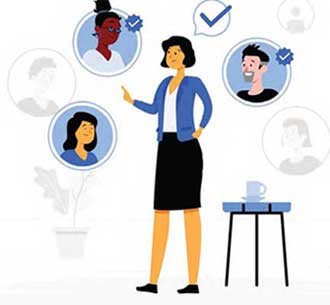
Flexible work options: Consider implementing flexible and remote work options. Clear guidelines to come onto work site or post-travel, quarantine period-all these need to be effectively laid out and managed.
Regular Covid-19 updates: Share the up-to-date and relevant information about Covid-19 symptoms and disease prevention recommendations among employees. Use only credible sources of information, such as the World Health Organization. A dedicated hotline or helpline can be established to address employee queries or conduct a series of remote seminars with relevant health professionals to facilitate question and answer sessions with employees to alleviate fears and concerns.
Psychological and Financial support: Consider providing psychological and financial support to your employees, such as emergency assistance, additional insurance coverage, regular payroll payments, as well as home infrastructure allowance.
Safe work environment for mission-critical staff: Purchase of medical equipment and supplies (e.g., thermometers, oximeter, oxygen concentrators, antibacterial products), self-monitoring of employees’ health, and disinfection of workplaces.
Revise leave policies: Review the provision for sick leaves and establish new policies. In particular, provide for a temporary absence from work due to illness without the need to provide doctor’s notes for such absences, and also allow leaves to be taken to attend to the dependents.
Business travel guidelines’ revision: Develop and communicate clear rules and obligations for employees who are at risk (those who travelled abroad for personal reasons or were on business trips). These include the requirement for a 14-day self-isolation of such employees and cancellation of all meetings with the clients and co-workers to ensure no workplace contamination, as well as co-worker/stakeholder safety and well-being.
CC: What is your philosophy of life that you live by?
“Life is not a problem to be solved but a reality to be experienced”. I believe in nishkama karma-driven by purpose, do what needs to be done with excellence but do not get attached to the outcomes, embrace the positives and the negatives in your stride.
What is your idea of relaxation?
I enjoy reading books, spending time in nature’s lap: walks in serenity, meditating by a water body in tranquillity, listening to mellifluous music, and of course, going on vacations with my loved ones.
Rudyard Kipling’s “If” is what I always remember to lead my life, says Kiranmai If
“If you can keep your head when all about you Are losing theirs and blaming it on you, If you can trust yourself when all men doubt you, But make allowance for their doubting too; If you can wait and not be tired by waiting, Or being lied about, don’t deal in lies, Or being hated, don’t give way to hating, And yet don’t look too good, nor talk too wise: If you can dream-and not make dreams your master;
If you can think-and not make thoughts your aim;
If you can meet with triumph and disaster And treat those two impostors just the same; If you can bear to hear the truth you’ve spoken Twisted by knaves to make a trap for fools, Or watch the things you gave your life to, broken, And stoop and build ’em up with worn-out tools: If you can make one heap of all your winnings And risk it on one turn of pitch-and-toss, And lose, and start again at your beginnings And never breathe a word about your loss; If you can force your heart and nerve and sinew To serve your turn long after they are gone, And so hold on when there is nothing in you Except the will which says to them: ‘Hold on!’ If you can talk with crowds and keep your virtue, Or walk with kings-nor lose the common touch, If neither foes nor loving friends can hurt you, If all men count with you, but none too much; If you can fill the unforgiving minute With sixty seconds’ worth of distance run, Yours is the Earth and everything that’s in it, And-which is more-you’ll be a Man, my son!”